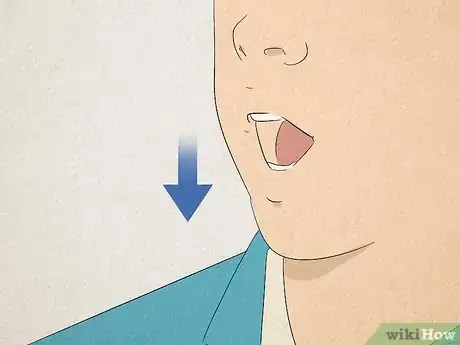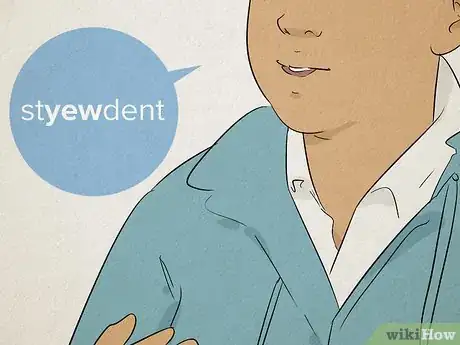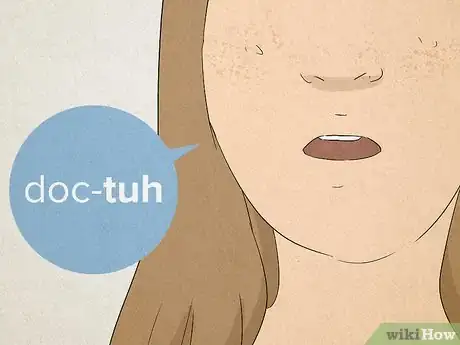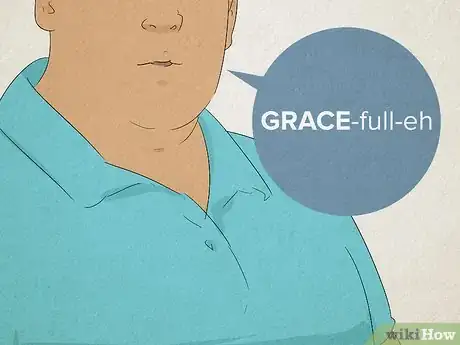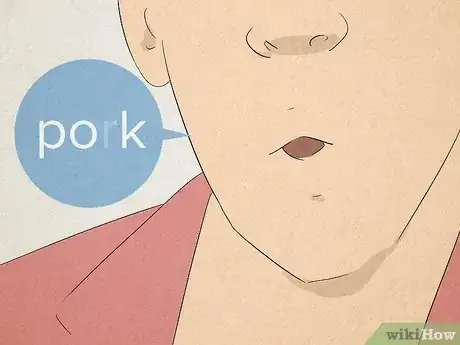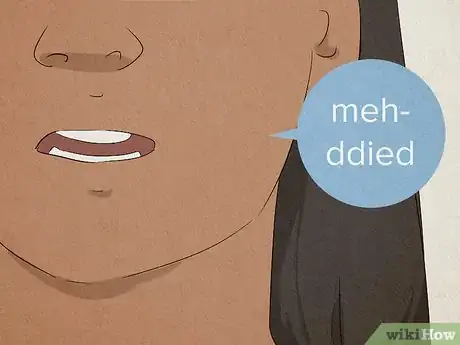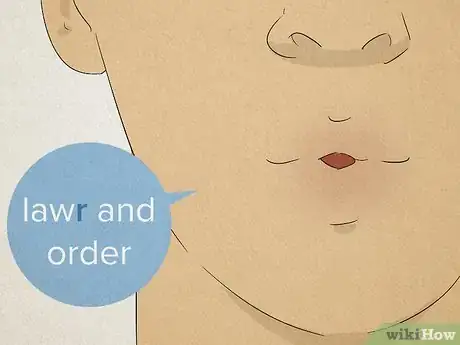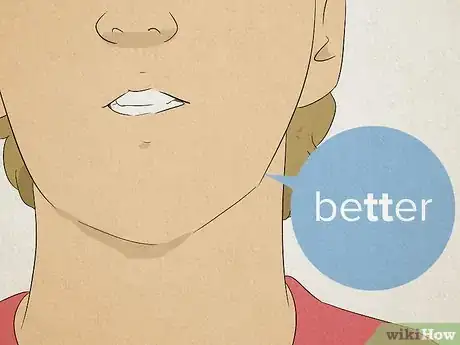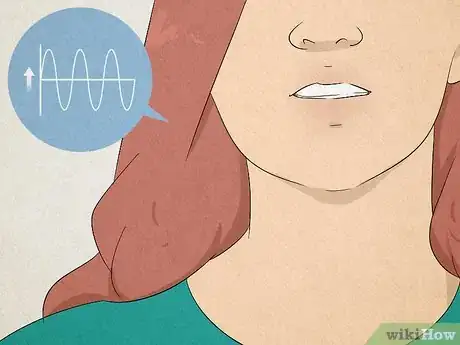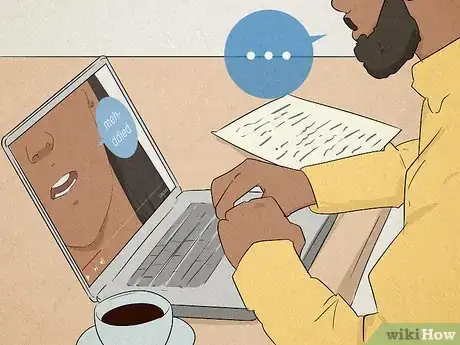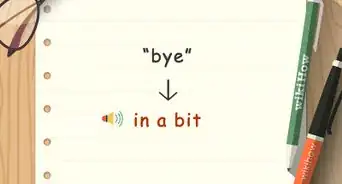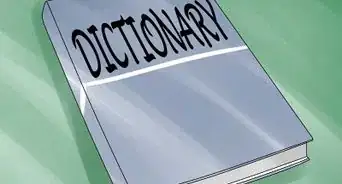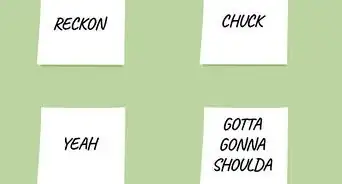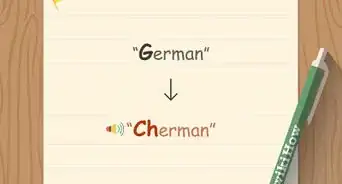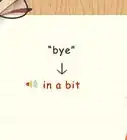This article was co-authored by Patrick Muñoz and by wikiHow staff writer, Jennifer Mueller, JD. Patrick is an internationally recognized Voice & Speech Coach, focusing on public speaking, vocal power, accent and dialects, accent reduction, voiceover, acting and speech therapy. He has worked with clients such as Penelope Cruz, Eva Longoria, and Roselyn Sanchez. He was voted LA's Favorite Voice and Dialect Coach by BACKSTAGE, is the voice and speech coach for Disney and Turner Classic Movies, and is a member of Voice and Speech Trainers Association.
There are 12 references cited in this article, which can be found at the bottom of the page.
This article has been viewed 248,675 times.
People in the United Kingdom speak numerous regional accents, all of which might be called an "English" accent—although they can be very different.[1] But when most people talk about a British accent or English accent, they're talking about Received Pronunciation (RP). While most letters of the alphabet are pronounced the same regardless of the accent you use, there are some distinct sounds that can make you sound particularly British. We've compiled tips to help you master some of those sounds here, as well as some general tips on how to polish your RP. With a little practice, you'll be sounding like a BBC newscaster in no time flat.[2]
Steps
Expert Q&A
Did you know you can get expert answers for this article?
Unlock expert answers by supporting wikiHow
-
QuestionCan adults pick up accents?
 Patrick MuñozPatrick is an internationally recognized Voice & Speech Coach, focusing on public speaking, vocal power, accent and dialects, accent reduction, voiceover, acting and speech therapy. He has worked with clients such as Penelope Cruz, Eva Longoria, and Roselyn Sanchez. He was voted LA's Favorite Voice and Dialect Coach by BACKSTAGE, is the voice and speech coach for Disney and Turner Classic Movies, and is a member of Voice and Speech Trainers Association.
Patrick MuñozPatrick is an internationally recognized Voice & Speech Coach, focusing on public speaking, vocal power, accent and dialects, accent reduction, voiceover, acting and speech therapy. He has worked with clients such as Penelope Cruz, Eva Longoria, and Roselyn Sanchez. He was voted LA's Favorite Voice and Dialect Coach by BACKSTAGE, is the voice and speech coach for Disney and Turner Classic Movies, and is a member of Voice and Speech Trainers Association.
Voice & Speech Coach
-
QuestionWhat is the accent of "good morning"?
 Community AnswerThe word "good" sounds like the American way of saying it, with very little expression/emotion. "Morning" is pronounced as though you're saying "warning" in our accent.
Community AnswerThe word "good" sounds like the American way of saying it, with very little expression/emotion. "Morning" is pronounced as though you're saying "warning" in our accent. -
QuestionHow do I write with an English accent?
 Community AnswerIf you wish to write in an English accent, you should write with English (and not US) spelling, grammar and word usage. Become familiar with slang and colloquialisms from different regions of Britain, and read British blogs, newspapers, and magazines to become more comfortable with the writing style.
Community AnswerIf you wish to write in an English accent, you should write with English (and not US) spelling, grammar and word usage. Become familiar with slang and colloquialisms from different regions of Britain, and read British blogs, newspapers, and magazines to become more comfortable with the writing style.
Warnings
- The glottal stop, where a vowel sound is cut in the throat rather than pronouncing the letter "t," is common in many regional English accents but isn't necessarily correct for RP. While you'll definitely sound more British if you employ this technique, it's better to focus on pronouncing the letter "t" correctly first.[18]⧼thumbs_response⧽
References
- ↑ Patrick Muñoz. Voice & Speech Coach. Expert Interview. 12 November 2019.
- ↑ http://www.bbc.co.uk/voices/yourvoice/rpandbbc.shtml
- ↑ https://www.backstage.com/magazine/article/6-tips-to-brush-up-your-british-accent-67942/
- ↑ https://youtu.be/HyhQh6lp7WU?t=213
- ↑ https://www.bl.uk/british-accents-and-dialects/articles/connected-speech-processes-in-received-pronunciation
- ↑ https://youtu.be/HyhQh6lp7WU?t=100
- ↑ https://blog.collinsdictionary.com/language-lovers/6-ways-to-get-an-english-accent-thats-posher-than-the-queens/
- ↑ https://youtu.be/4o_EqpMZ6W0?t=439
- ↑ https://www.bl.uk/british-accents-and-dialects/articles/connected-speech-processes-in-received-pronunciation
- ↑ https://blog.collinsdictionary.com/language-lovers/6-ways-to-get-an-english-accent-thats-posher-than-the-queens/
- ↑ https://youtu.be/DCJrFM3hdlg?t=97
- ↑ https://youtu.be/2FiCsX72FxI?t=61
- ↑ https://www.bl.uk/british-accents-and-dialects/articles/connected-speech-processes-in-received-pronunciation
- ↑ https://pointpark.libguides.com/dialectguide/standardenglish
- ↑ Patrick Muñoz. Voice & Speech Coach. Expert Interview. 12 November 2019.
- ↑ https://www.bl.uk/british-accents-and-dialects/articles/connected-speech-processes-in-received-pronunciation
- ↑ https://pointpark.libguides.com/dialectguide/standardenglish
- ↑ https://youtu.be/kJIMgLnjeJQ?t=56

